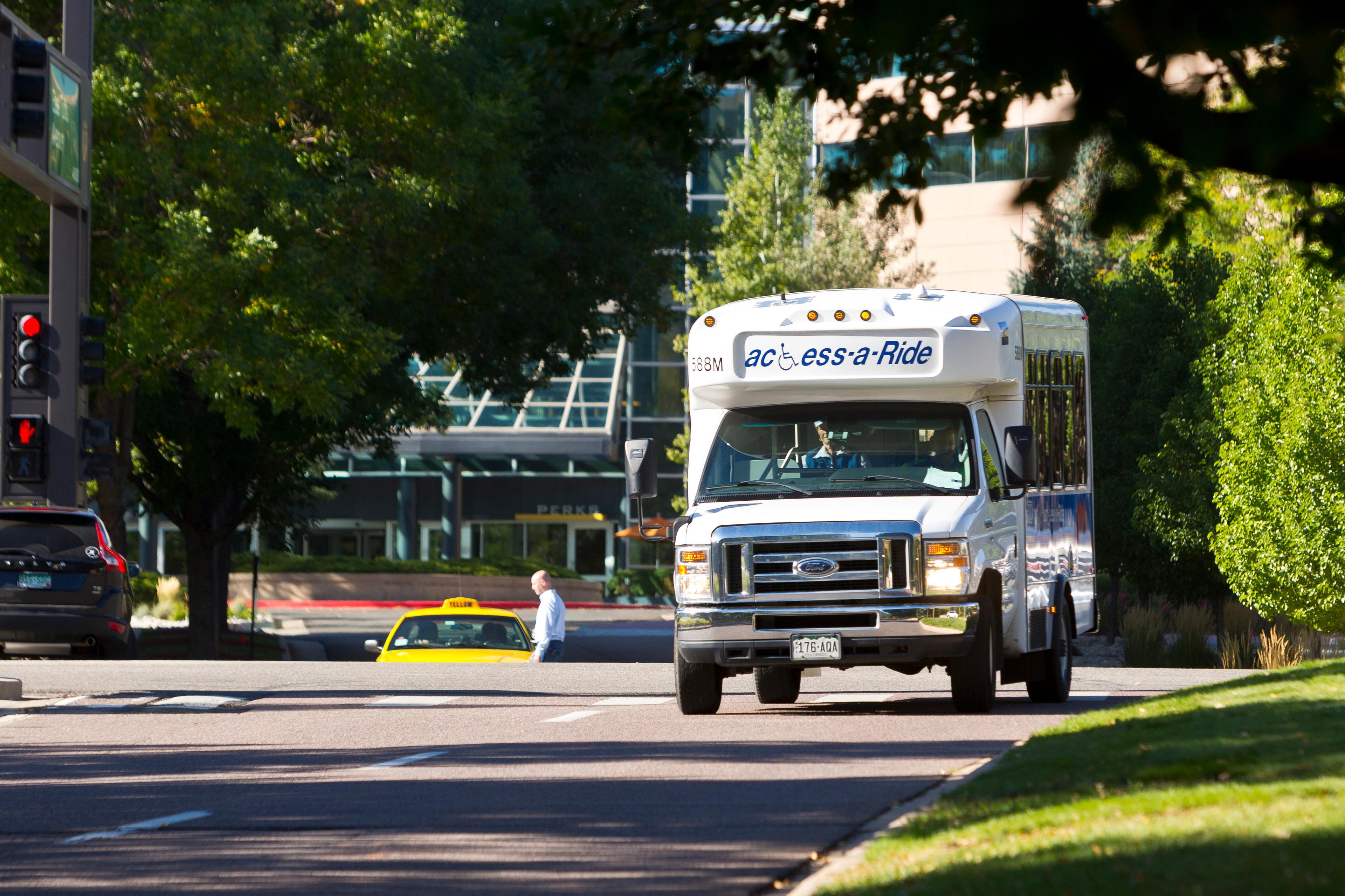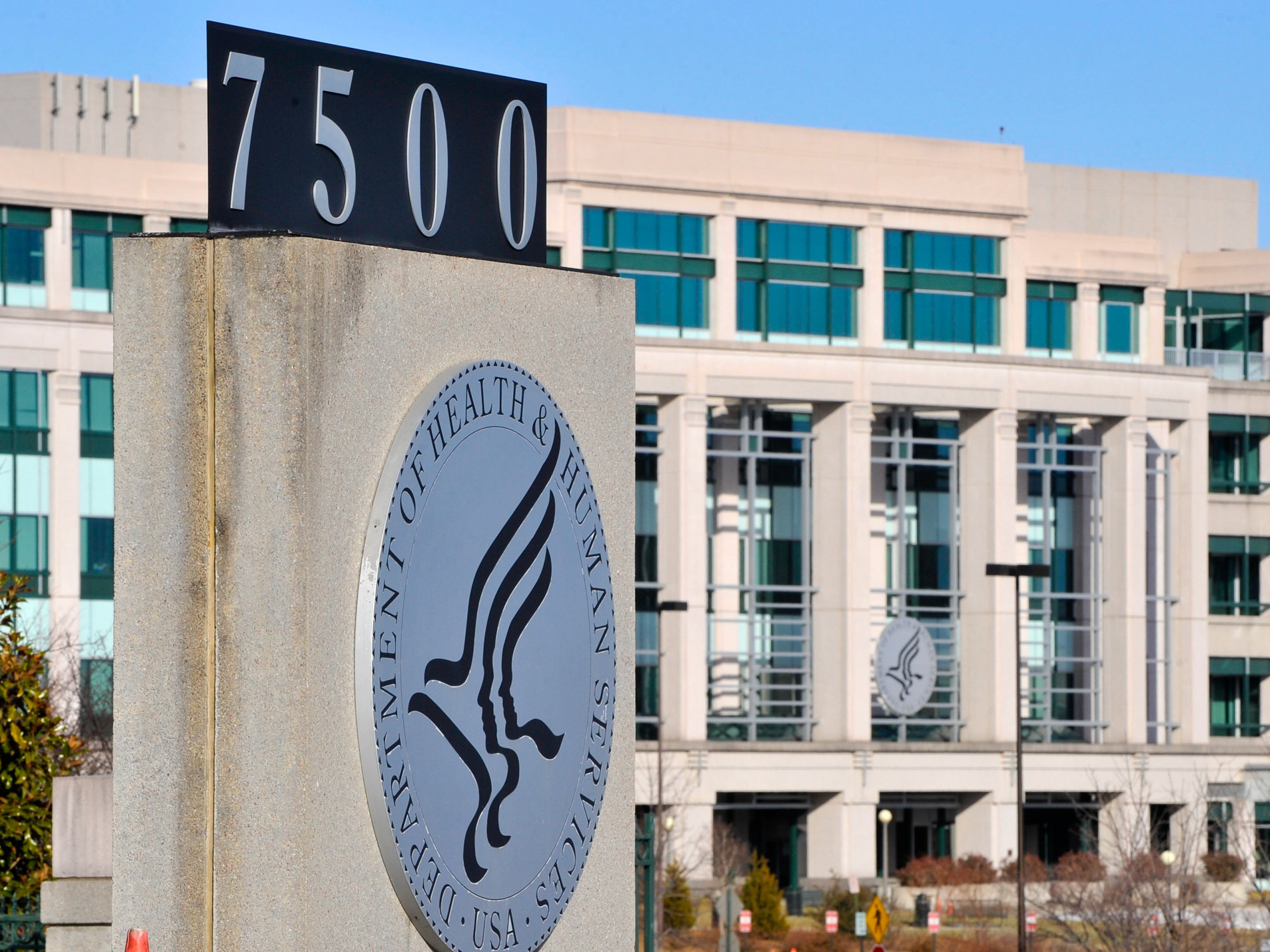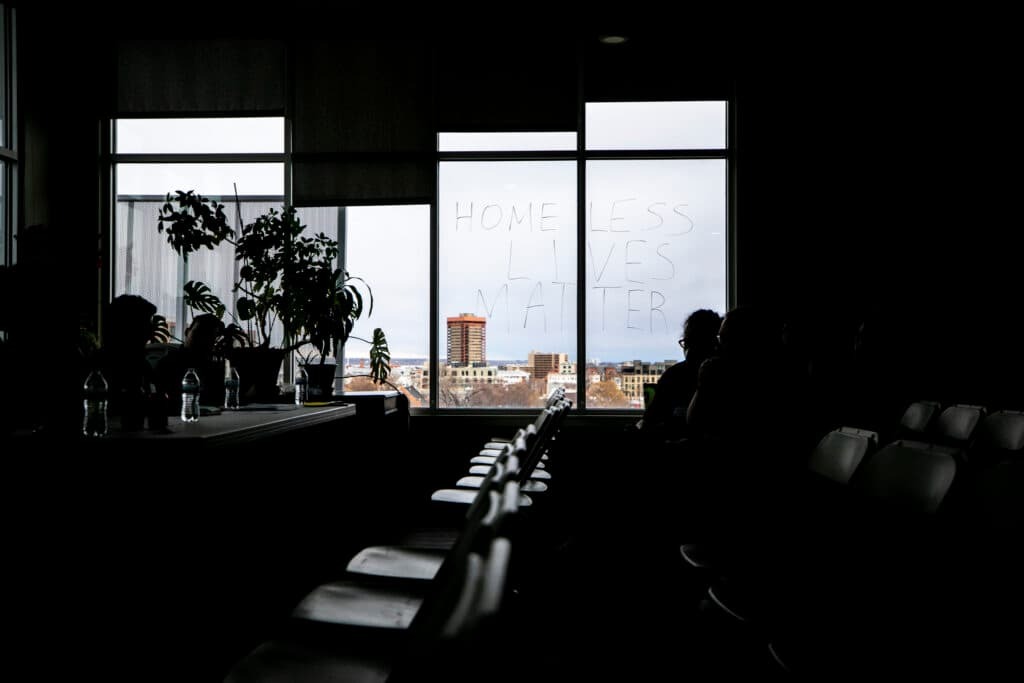
For people like Louis Apodaca, RTD's Access-A-Ride program has been a lifeline. Apodaca started to use it after her wheelchair got stuck at a bus stop, and the fire department had to rescue her.
"The bus stops, a lot of times, are on gravel or on grass or mud," Apodaca, a resident of Denver's Lincoln Park neighborhood.
But now, Apodaca, a transit advocate for the Colorado Cross-Disability Coalition, is worried the program will become too expensive for many of its users. A possible fare hike from $4.70 to $6 per trip could be too much for users on limited incomes.
"That's $12 for a round-trip," Apodaca said at an RTD open house in Englewood on Thursday. "That's very prohibitive."
The $47.5 million-a-year program made 881,283 trips in 2016, delivering people with disabilities door-to-door across metro Denver. Users call at least one day ahead of time to schedule a ride, and have to pass a physical test to qualify for the program.
Apodaca said if fares go up, she herself may have to give up some of her work. "I would no longer be able to participate in a lot of boards and commissions that I work with now," she said. "I couldn't afford to go."
The proposed increase is part of RTD's triennial review of fares and a Pass Program Study aimed at making passes more equitable that wrapped up this spring. Fares are currently the subject of a slate of RTD open houses scheduled through next week.
The agency's Board of Directors will weigh three options this fall; two of the three include across-the-board fare increases.
| Option 1 | Option 2 | Option 3 |
|---|---|---|
No fare increase | Proposed fare increase per regularly scheduled fare review | Proposed fare increase with Pass Program Working Group recommendations |
|
|
|
Access-A-Ride's pricing traditionally is twice the base fare, which is why it could cost as much as $6 for a trip. Still, said RTD transit equity manager Michael Washington, Access-A-Ride trips are already heavily subsidized. Each ride costs the agency between $40 and $50.
"Because we take such a loss on Access-A-Ride, we do want to share some of that cost with our riders," he said. "But not to the point where it cripple them and prevents them from being able to use our service."
Vivian Stovall, a resident of Denver's Villa Park neighborhood and an Access-A-Ride user, said she could stomach a fare hike — if it meant service levels are maintained.
"I don't want to be isolated in my home," Stovall said.
"If paying little bit more on bus or Access-A-Ride will keep the services we have, or help increase the services, I'm more than happy to do it," she said. "I can stop going to happy hour."
Although, Stovall clarified, she'd rather not.









